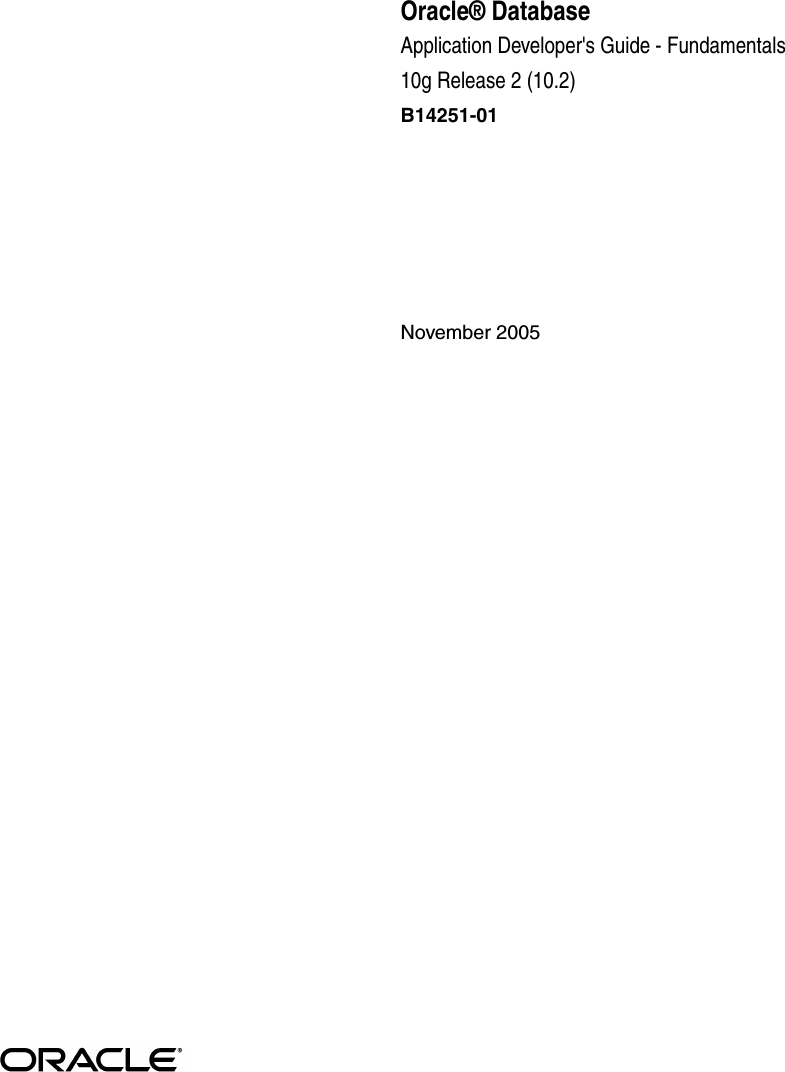After his 2nd position in the 1989 championship, Senna had won two consecutive titles in 1990 and 1991, again as the driver of McLaren. His fiery rivalry with Alain Prost was one of the biggest in the history of Formula 1 and had marked many seasons in the late 1980s and early 1990s. He also had 80 podiums, 65 pole positions, and 19 fastest laps, scoring a total of 610 points. A modern-day legend and the winningest driver in Formula One history, Lewis Hamilton has seven World Drivers' Championships, tied with Michael Schumacher for most titles. Hamilton holds the record for most pole positions, most podium finishes, and most wins in Formula One. He is also the first and only black driver to compete in the series.
Hamilton grew up in Hertfordshire, England, and joined the McLaren young driver program at 13. This provided the chance to go Formula One racing for McLaren in 2007. Hamilton made the most of his opportunity with one of the most dominant rookie seasons in history. Four years later, Hamilton moved to Mercedes, where he won six championships, four of which were won consecutively from 2017 to 2020. Vettel's F1 career started in 2007 and, in his first three years, he took nine podiums and five wins, though this was nothing on what was to come.
Over the next four years he became the face of F1, winning four consecutive championships and becoming the youngest world champion in the process . He holds the record for most pole positions, most podium finishes, and most wins. Hamilton is the only driver with over 100 wins, and he is still racing and adding to the total. He has won seven World Drivers' Championships, tied for most of all-time with Michael Schumacher. However, Hamilton has won over 33% of the races he entered, while Schumacher only posted a 29% winning percentage during his career.
An active boy who played several sports, Prost grew up in the Loire Valley of France and discovered karting at 14, which he took up as a hobby. It quickly became an obsession, and he left school at 19 to pursue racing full time. Prost won the French and European Formula Three championships, then moved to Formula One, driving for McLaren. With McLaren, Prost cultivated his most infamous feud with teammate Ayrton Senna, who was the crowd favorite.
Over his career, he won four World Championships and 51 races, making him one of the most successful drivers of all time. Interestingly, that year was Nigel's last full-time season in Formula 1. He had a brief return in 1994 and 1995 and even managed to win one race. In his career, Mansell recorded 187 starts, 31 wins, 59 podiums, 32 pole positions and 30 fastest laps with a total of 480 points scored. France's Alain Prost (No. 6) won a grand total of four championships in his career, tied for the third most ever.
But from 1988 to 1991, he would claim only a single title, thanks largely to the otherworldly skills of Ayrton Senna (No. 1), his one-time McLaren teammate. Senna won more than 40 percent of the races he entered during that span, peaking with one of the highest Elo ratings ever in 1989. Senna was so dominant that Prost ended up leaving McLaren for Ferrari in 1990; the rivalry would continue off and on for the next few seasons until Prost retired after his 1993 championship. Senna died the next year in a crash in the San Marino Grand Prix. Prost was a once-in-a-generation driving talent, but he had the misfortune to race against Senna, a once-in-a-lifetime phenomenon. He made a 46 years unbeaten record by winning the most World Championship of Drivers starting from 1951 and then 4 consecutive times from 1954 to 1957.
With 24 wins, 29 highest pole positions, 35 podiums, 245 career points, and 23 fastest laps, he decorated his career with the greatest possible success. The youngest Formula One driver to win a championship, Sebastian Vettel holds the record for most consecutive race wins and most wins in a single season. He joined the Red Bull Junior Team at 11, then went open-wheel racing at 16, winning the 2004 Formula BMW ADAC championship the next season. After racing in Formula 3 Euro and Formula Renault 3.5, Vettel got a test driver gig for BMW's Formula One Team, where he made one start. Then in 2007, he was picked up for a full-time ride with Toro Rosso, becoming the youngest to win a Formula One race at 21. Vettel was promoted to Red Bull, winning four consecutive championships starting in 2010.
Vettel moved to Ferrari, then Aston Martin, where he is still racing today. The list displays theall time F1 driver rankingsfor the most amount of races, victories, podiums, pole positions, fastest laps and the total amount of points for each F1 driver. We also have the all time F1 teams ranking and the current F1 Records page. During his long career, Schumacher started in 306 Grand Prix races. He scored 91 wins, 155 podiums, 77 fastest laps, 68 pole positions and collected a total of 1566 points, which is the fourth best result in the history of Formula 1. Widely considered one of the greatest F1 drivers of all time, Niki Lauda was a 3-time World Champion who made one of the most inspirational comebacks from injury that the sporting world has ever seen.
Lauda, who died at the age of 70 in 2019, entered Formula 1 with March in 1971 but didn't reach his full potential until switching to Ferrari in 1974. After winning two races during his debut season with the Scuderia, Lauda swept to his maiden World Championship in 1975. Another championship beckoned in 1976 before Lauda was seriously injured in a fiery crash at the Nürburgring, which saw him sustain severe burns. Against the advice of medical experts, Lauda returned to the cockpit just 6 weeks later for the Italian Grand Prix, having missed only two races. As portrayed in the hit film Rush, Lauda ultimately lost the 1976 drivers' title to James Hunt by just one point, but he returned stronger the next season to secure his second World Championship.
Two disappointing seasons with Brabham followed, before Lauda took a break from the cockpit for two years. He returned with McLaren for four more seasons, winning a third World Championship in 1984. After retiring from F1, Lauda assumed a number of management roles in the sport, notably as Team Principal of the Jaguar team in the early 2000s. In later years, Lauda was appointed non-executive chairman at Mercedes, helping sign Lewis Hamilton to the team that would become unbeatable in the turbo-hybrid era. Away from the cockpit, Lauda forged a successful career in commercial aviation. Although he hasn't tasted title success since, he remains an F1 driver with Alfa Romeo and with a career stretching across 335 races – the most of any Formula 1 driver.
Kimi has won 21 grands prix in his career, the last coming in the 2019 Italian Grand Prix during his final season at Ferrari. Nigel Mansell can be considered one of the unluckiest drivers in the history of the sport. He has picked up 31 wins in 187 races but managed to win the title just once throughout a long 12-season career. His 1992 title made him the fifth-oldest Formula 1 champion as he claimed the crown at the age of 39. During his Formula 1 career, Damon Hill started in 115 races, scored 22 wins and 42 podiums, collecting a total of 360 points.
Although he was born in Germany, Jochen Rindt represented his adopted home of Austria in a successful racing career that was tragically cut short at the peak of his powers. Just four years after getting behind the wheel, Rindt secured a full-time Formula 1 drive with Cooper in 1965. His first three years in the top echelon yielded mixed results, though he did score three podiums and finish third in the 1966 drivers' standings. After a disappointing season with Brabham in 1968 saw him retire on ten occasions, Rindt's career rebounded with a move to Lotus in 1969, where he scored his maiden F1 victory at Watkins Glen. With the revolutionary Lotus 72 at his disposal the following year, Rindt was unstoppable.
The Austrian won five races out of nine before he was killed in a crash during practice for the 1970 Italian Grand Prix at Monza, becoming Formula 1's only posthumous World Champion. After scoring a podium in only his third Formula 1 race for Benetton in 1997, Alexander Wurz seemed destined for big things. Sadly, his tenure at Benetton coincided with the team falling down the order after winning championships with Michael Schumacher in the mid-1990s. Outclassed by teammate Giancarlo Fisichella in 1999 and 2000, Wurz found himself out of a full-time drive for 2001.
Five seasons as a test driver for McLaren followed, including one race deputizing for the injured Juan Pablo Montoya, in which he finished third. Wurz finally returned to a full-time race seat with Williams in 2007, scoring his third and final F1 podium at the Canadian Grand Prix before retiring at the end of the season. Away from Formula 1, Wurz won the 24 Hours of Le Mans twice, in 1996 and 2009. Since 2014, he has been the Chairman of the Grand Prix Drivers' Association, the trade union of Formula 1 drivers.
He attended the last race of his career in the 2012 Brazilian Grand Prix and finished in 14th place. He won 91 races in total in his successful career which includes most of the major championships with the fastest laps and highest pole positions along with 72 Grand Prix victories. He made Mansell an offer he couldn't refuse, and boy was he glad he didn't. The 1992 seasons saw Mansell make the most scintillating starts to a campaign, with five straight victories in a row.
He won three of the next five races, and dominated winning the championship by a huge margin over teammate Ricardo Patrese. He set his sights on America the following year, joining the IndyCar series, and won the championship. Niki Lauda was an Austrian racing legend who went on to become a successful aviation entrepreneur.
Cut off from family support, he parlayed a series of loans to finance his racing career, moving up from Formula Vee to Formula One in four short years. Lauda won his first world championship in 1975, driving for Ferrari. The next season he crashed at the Nurburgring and suffered life-threatening burns and injuries. He made a miraculous recovery and returned in six weeks, only missing the championship by one point.
In 1977 Lauda was back in full form, winning his second championship. Lauda retired in 1985, the year after winning his third and final championship. He went on to found and run three airlines, as well as serving as manager, consultant, and part-owner of several Formula One teams. He is the only driver in F1 history who finished in 1st position in 5 consecutive seasons from 2000 to 2004. During his 11 years long F1 career, Hakkinen started 161 races, won 20 and had 51 podiums, as well as having recorded 25 fastest laps and 26 pole positions, in addition to 420 points scored.
In a season packed with close racing, controversy, and tight championship battles, it is easy to pay attention to just the winners and losers. But the season has so much more than just the championship battle between an all-time great and a future great driver. There were break-out performances, stunning qualifying laps, talented rookies looking to make their mark, and the return of a two-time world champion who still has unfinished business in the sport. He began go-karting at aged 14, when he discovered the sport during a family holiday. His F1 career started at McLaren in 1980 with a disappointing campaign, but it kicked into life when he signed for Renault. He took his first few wins in 1981, and finished 4th in the drivers' championship in 1982.
But his career took a huge step in 1983, when he pushed Brabham's Nelson Piquet all the way and finished within two points of the title win. Clark set 33 pole positions and won 25 of the 72 GP starts he made, and can claim numerous records to this day – in 1963, for example, he led 71 per cent of all laps raced that season. As well as his versatility, Clark was revered for his incredible silkiness behind the wheel, and his extraordinary mechanical sympathy. "Jim Clark was everything I aspired to be, as a racing driver and as a man," his great friend Sir Jackie Stewart said. Unfortunately for Vettel the regulation changes in 2014 didn't suit Red Bull , and the team quickly fell back through the pack.
He went from nine consecutive wins in the final nine races of the 2013 season to not winning a single race until 2015, and since that 2013 season he's 'only' taken 14 wins. Despite that he's still widely regarded as one of the best drivers on the grid, and his list of records is likely to stand for many more seasons. Ayrton Senna was one of the most beloved, successful, and dedicated racing drivers of all time. Senna grew up in a wealthy family in Sao Paulo, Brazil, and became obsessed with a miniature go-kart his father gave him at the age of four. Despite pressure from his father to give up racing and join the family company, Senna continued.
He moved up to Formula F in 1981, Formula Three in 1983, and made his Formula One debut in 1984. Obsessive and highly competitive, Senna quickly dominated Formula One, taking home the Drivers' Championship three times between 1988 and 1991. Senna was killed suddenly in a crash at the 1994 San Marino Grand Prix. The Formula One drivers who have won the most championships are joint record-holders Michael Schumacher and Lewis Hamilton. Both drivers have seven World Drivers' Championships to their name.
Schumacher set the record first, winning back-to-back titles in 1994 and 1995, then stringing together five consecutive championships from 2000 to 2004. Hamilton won his first championship in 2008 and took home two more in 2014 and 2015. Hamilton is still racing, so he very well may take sole possession of this distinction in due time. While it may seem premature to call him one of the greatest of all time since he's still winning races and breaking records, Hamilton's record-setting wins pretty much put him at par with the greatest F1 drivers of all time.
Hamilton currently has 87 victories and 151 podium finishes to his credit, and he is on the verge of breaking Michael Schumacher's record of 91 GP wins. Is definitely the best Formula 1 driver of all times, one of the synonyms of the sports and a kind of a superhero. The Formula 1 career of the Brazilian driver started in 1984, and four years later, he won his first championship title driving for the McLaren team.
Pierre might only be 26, but we know it wouldn't take long before he starts winning our hearts at every track across the globe. Pierre then continued to stay driven and delivered more success to the renamed Scuderia AlphaTauri team in 2020 and was back on the podium and scored 110 of the squad's 142 points in 2021. Like several other FiveThirtyEight Elo systems, the average driver has an Elo score around 1500, while new drivers start with 1300 points. The "K-factors" in this version of Elo — which are multipliers that determine the sensitivity and fluctuation of a driver's rating — are more extreme in the beginning of a driver's career. Drivers start with a K-factor of 24 for approximately the first year, then reduce as they gain experience. The minimum K-factor for qualifying sessions is 16, while the minimum K-factor for races is 12.
Drivers always gain Elo points after "defeating" another driver and lose ground after "losing" to them. Friends away from the track, Niki Lauda (No. 8) and James Hunt (No. 17) had a fierce rivalry behind the wheel that peaked during the 1976 season. Lauda went into the year as F1's top-rated driver by Elo before suffering a fiery crash at the German Grand Prix that nearly took his life. Six weeks after being given last rites, Lauda somehow bounced back to finish fourth at the Italian Grand Prix. But in the end, Hunt ended up eking out the 1976 title by a single point over his Austrian rival.
Hunt was quick again the following season, but he was unable to keep his car on the track; he took six poles to Lauda's two but retired from eight of 17 races, six of which were due to mechanical failure. And that's exactly what he did in 1975, with his first world championship. With an incredible Ferrari 312, he took the title with an impressive five wins.
Lauda had another incredible start to the season with six wins and nine podiums in 10 races. But during the German Grand Prix, Lauda suffered life-threatening injuries that looked almost certain to end his life, let alone his racing career. Not all of the world's great sporting stars are as extrovert as they might appear – or as we might want them to be. Jim Clark was one of the most unassuming men ever to sit in an F1 cockpit, but also arguably the most singularly gifted driver of all time.
However, this doesn't mean that if you aren't winning you won't be successful in motorsport. Niki Lauda had to pay to enter the Formula 1 world, but he would certainly not become one of the top ten drivers in sports history without possessing talent. Lauda has competed in 99 more races than the aforementioned Jim Clark and yet he sits at the same number of wins . Nevertheless, we have put him above the Scotsman because of the number of world titles as Lauda claimed the season-ending No 1 spot on three separate occasions . Lauda may not have the most titles, wins or poles, but the Austrian cannot be left of such a list.
He was the leading driver of 1974 Ferrari team and won his first world title in 1975. In 1976, however, his progress was interrupted by a crash at the infamous Nürburgring. Nikki suffered horrible burns to his body, head, throat and lungs. To prove his worth, he returned in 1977 to win his second title before retiring in 1979.



























